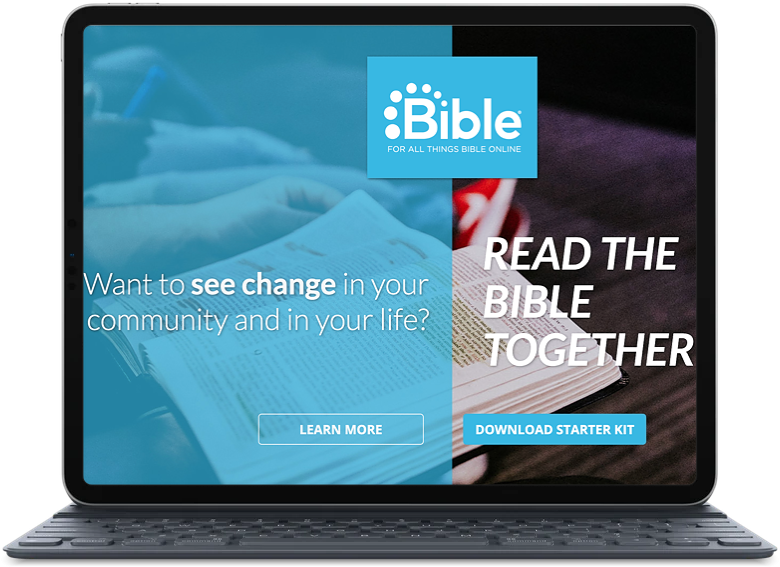
5 Steps to Run a Bible Reading Campaign
There’s nothing like reading communally, and a church-wide Bible reading campaign is the icing on the cake. There is no doubt that an event like this would produce fruit, but for busy leaders, putting a campaign together can seem like a lot of work.
Which is why we’ve made it easy for you.
5 Steps to Run a Church-Wide Bible Reading Campaign
Step 1: Pick the dates
Check out your church calendar and determine a good time to conduct a long-term event like this one. You can choose your dates, or your church’s schedule might determine the reading plan!
- Do you celebrate Lent? Use those 40 days to dig into the Scriptures together, preparing for Easter.
- Does your church honor Advent? Encourage members to prepare for Christmas with a month-long campaign during the month of December.
- Are you on a September-June school calendar? March is Reading Month for most students; make it Bible Reading Month for the adults!
- Late winter and early spring months are generally free from holiday commitments and the distractions of nice weather. Try a 2-week campaign during this “open” time of year.
Keep It Short
Like PT Barnum said, “Always leave them wanting more!” As you determine the campaign length, keep that mantra in mind. Especially if it’s the group’s first commitment, you want to set them up for a meaningful, achievable experience. Groups can plan on one concentrated week, or a longer event that might last for a month or two. The key is to start small and build.
Step 2: Choose Your Reading Plan
There are countless, quality plans available online. Our team produced ReadingPlans.Bible with a free starter kit that has everything you need. ForAllThings.Bible has a curated collection of select reading plans.
You can also search Bible.com, BibleStudyTools.com, BacktotheBible.org, Bible Gateway, and esv.org for plans that can fit your time frame. Check out some of our favorites that might be suited for longer campaigns.
For a month-long event, search online with something like “30-day Bible reading plan” and then look closer at the sites that look trusted and familiar to you. It really is that easy!
Step 3: Plan Group Interactions
How will the members interact and communicate? The options are endless, but some simple options include:
- Plan real-life, face-to-face get-togethers! Meet in a home or at a coffee shop, or in a comfy room in the church.
- Create a closed Facebook group and invite members to join.
- Free online discussion platforms like phpBB, Codoforum and Discourse can be utilized with just a small amount of tech savvy.
Step 4: Promote the campaign!
Use your church’s typical methods of communicating events, like Sunday morning announcements and email. But don’t forget to harness your best (and cheapest!) resource, the Internet.
- Use your church’s social media channels to post about the upcoming campaign. Create a hashtag for your event and use it every time you post.
- Create an online home for the campaign. Participators can head to a designated web page to find the plan, announcements, and possibly discussions. Think of it as a one-stop-shop for the Bible reading campaign.
You can find room on your church’s website, or you can keep it fast and simple by creating a mini-site just for this event. For instance, DetroitMethodistReads.Bible is clear and memorable, and for a Detroit church conducting a Bible-reading campaign, it’s branded to perfection.
Pick your name! Register for your Bible reading campaign mini-site.
Step 5: Read & Share
To get the ball rolling, use our Pro Tip:
“Secretly” tell a few high-energy, engaging folks in your church about the campaign and ask them to read and share regularly once it begins.
It’s easy for the campaign coordinators to get buried in the planning and logistics, but remember to actually do the reading alongside the participants. Your authenticity and genuine interaction with the text will keep the campaign fresh and inspired.
Optional Step 6:
Take a moment to publicly comment on the ending of the campaign, citing a few examples or quotes from impacted participants. Thank those who were involved!
Make sure the coordinators record a couple of notes regarding their experience. For the next campaign, you’ll be ahead of the game!


